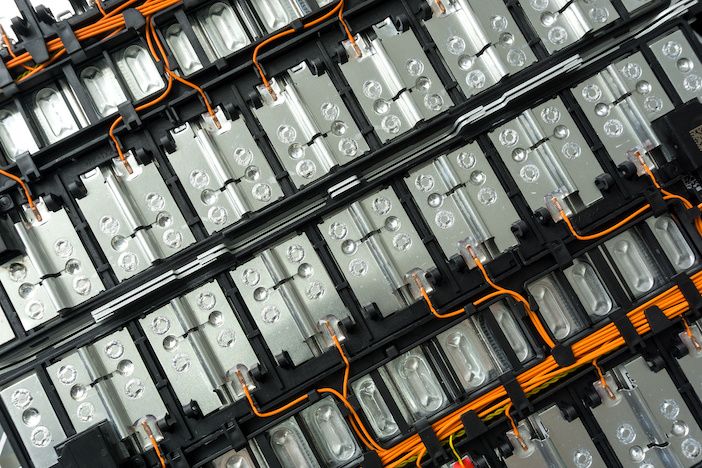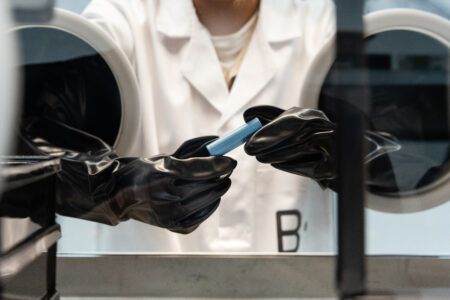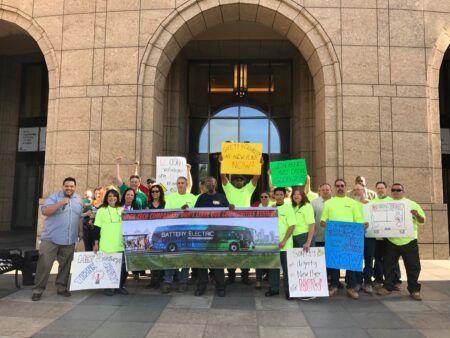Daimler Truck North America LLC (DTNA) has partnered with Nuvation Energy to pilot a battery energy storage system (BESS) designed to assist in charging, peak shaving, backup storage and microgrid scenarios. This innovative solution enables DTNA to repurpose batteries that cannot be reused in a commercial electric vehicle.
Leveraging advanced technology, DTNA can discern when a lithium-ion battery no longer meets DTNA’s high standards required for vehicle use. This insight guides the decision on the optimal process to maximize materials for a second life, with repair taking precedence whenever possible.
“As part of our commitment to maximizing material life cycles, we meticulously assess environmental and ethical implications from sourcing to post-production,” said Rakesh Aneja, vice president and chief of Zero-Emission Transformation Group at DTNA. “Our primary goal is to repair our lithium-ion battery materials and reduce the consumption of new resources.”
When a battery or electric vehicle component is beyond simple repair, it enters the remanufacturing process at existing Detroit Diesel Remanufacturing locations across the US. This process involves partial disassembly, module replacement and rigorous testing for optimized reliability. All remanufactured products are updated with the latest technology and must meet or exceed new product standards to be reintroduced to the market.

DTNA is committed to reducing the company’s overall carbon footprint by integrating a comprehensive circular economy approach across its operations. This strategy emphasizes repairing, remanufacturing, repurposing and recycling lithium-ion battery materials used in all DTNA electric vehicles (EVs).
“We’re thrilled to announce the incorporation of DTNA’s first battery energy storage system units, designed by Nuvation Energy using Detroit battery modules, at Electric Island later this year,” says Aneja. “Battery energy storage systems play a pivotal role in the electric vehicle ecosystem, given the escalating demand for charging infrastructure and limitations of the current power grid. As the number of EVs on the road increases, the existing grid capacity may struggle to meet charging demands. Energy storage systems alleviate this issue by facilitating off-peak charging, utilizing stored power when needed, and reducing reliance on the grid.”
Battery recycling process
DTNA has created a process in partnership with Li-Cycle, a leading lithium-ion battery resource recovery company, to responsibly recycle critical battery-grade materials for batteries that reach the end of their life cycle. Li-Cyle uses an environmentally friendly and safe method that recycles batteries within a liquid-based solution, achieving up to a 95% recovery rate for returning critical materials back to the battery supply chain while producing minimal water discharge.
“This circular approach extends beyond just batteries,” concluded Aneja. “We are actively working to apply this concept to other facets of our product development, aiming to increase our utilization of reusable or recyclable materials. Our goal is to continue contributing positively to the preservation of our planet for future generations.”





